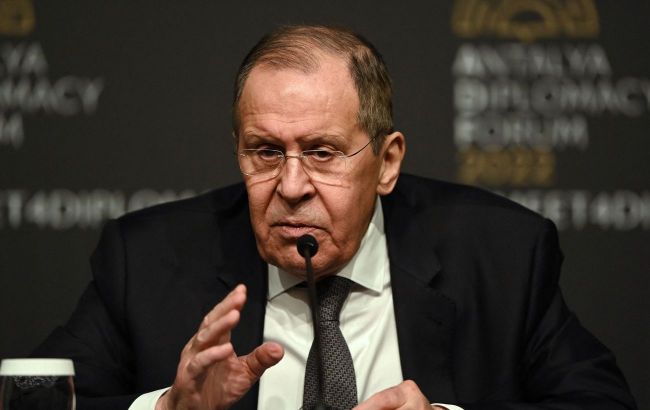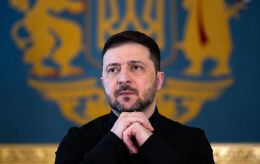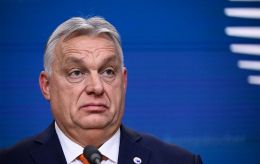Russia seeks to build Eurasian security while destroying global order - ISW
 Photo: Russian Foreign Minister Sergey Lavrov (Getty images)
Photo: Russian Foreign Minister Sergey Lavrov (Getty images)
Russia is striving to build an Eurasian security architecture and use it to disrupt the current global order, according to the Institute for the Study of War (ISW).
On Monday, September 9, in Saudi Arabia, Russian Foreign Minister Sergey Lavrov attended the Russia–Gulf Cooperation Council (GCC) Joint Ministerial Meeting of Strategic Dialogue.
During the strategic dialogue session, Lavrov held talks with GCC Secretary General Jasem Mohamed Albudaiwi, Saudi Foreign Minister Prince Faisal bin Farhan, and Saudi Crown Prince and Prime Minister Mohammed bin Salman.
In these meetings, Lavrov emphasized Russia's interest in expanding cooperation with the Gulf countries. Discussions with Saudi officials included enhancing trade, cultural ties, and bilateral investments. Additionally, Lavrov invited Saudi Prime Minister Mohammed bin Salman to the BRICS summit in Kazan, Russia, scheduled for October 2024.
The report recalled Lavrov’s July statement that Russia and China advocate for the creation of an Eurasian security architecture within the GCC framework. Analysts at the Institute speculated that Lavrov's meetings with Gulf leaders were aimed at advancing this agenda.
Analysts do not rule out that Lavrov’s visit is part of Kremlin efforts to promote the proposed Eurasian security architecture.
"ISW previously assessed that Russia's proposal of a Eurasian security architecture is consistent with Russia's long-term strategic goal of disbanding Western unity, disbanding NATO from within, and destroying the current world order," the ISW noted.
The Gulf Cooperation Council (GCC) is a regional international organization established on May 25, 1981. Its members include Bahrain, Qatar, Kuwait, the United Arab Emirates, Oman, and Saudi Arabia. Jordan and Morocco are also invited to join.
The GCC’s governing bodies include the Supreme Council of Heads of State, which meets annually, and the Council of Ministers, which convenes quarterly. The General Secretariat is based in Riyadh, Saudi Arabia.
The primary aim of the GCC is to coordinate, cooperate, and integrate in all economic, social, and cultural matters.
Under the Unified Economic Agreement, tariff barriers among the six member states have been removed, allowing Gulf nationals to freely establish and conduct business in any member state on equal terms. Additionally, plans include the creation of combined defense forces for rapid deployment.
Recent reports indicated that Russia had planned to supply weapons to Houthis. However, under pressure from the United States and Saudi Arabia, the Kremlin abandoned this idea.
Meanwhile, India will send an envoy to Moscow to discuss peace initiatives to end the war between Russia and Ukraine.
For more on the BRICS alliance as a counterweight to the West, read the RBC-Ukraine article.


